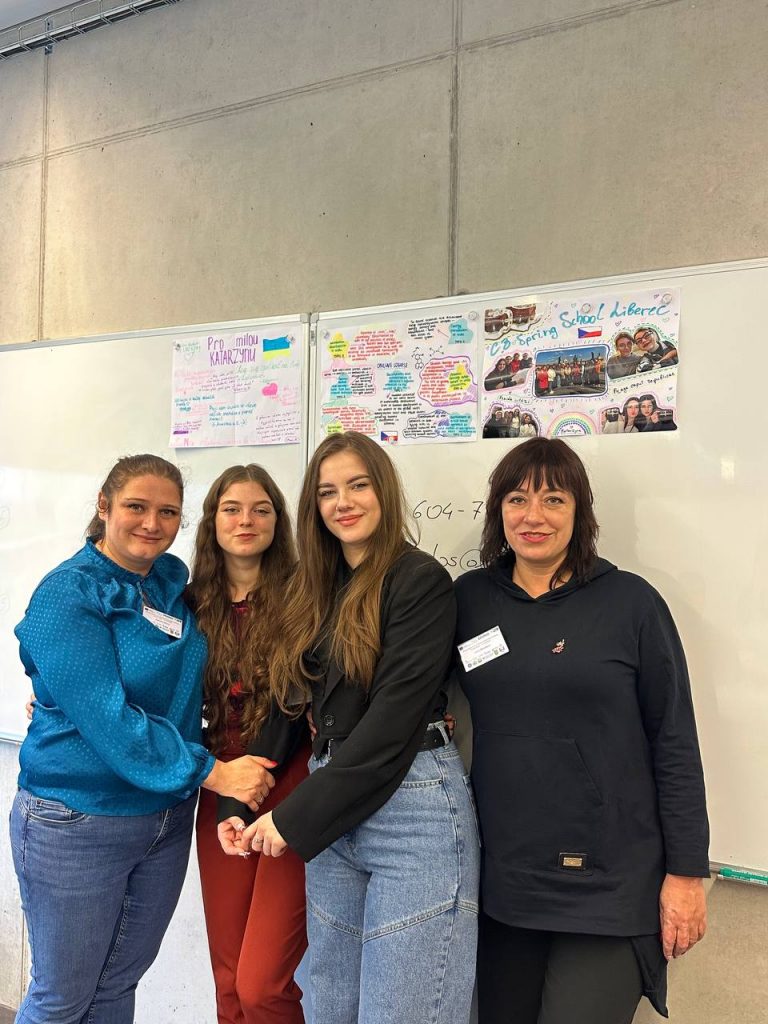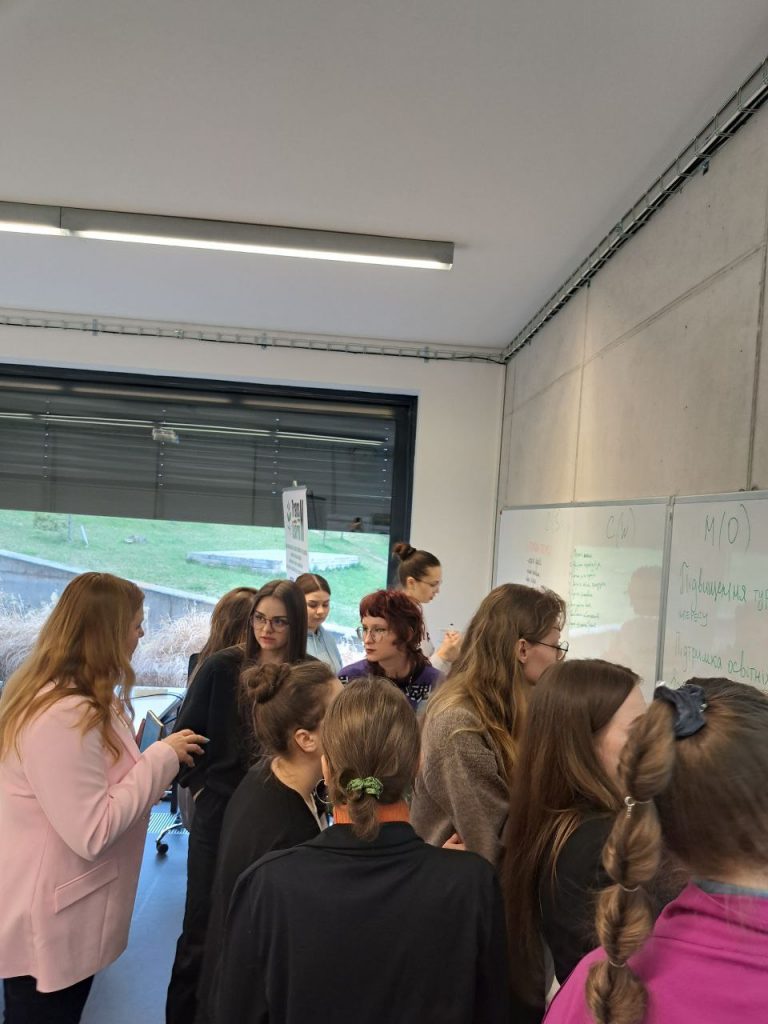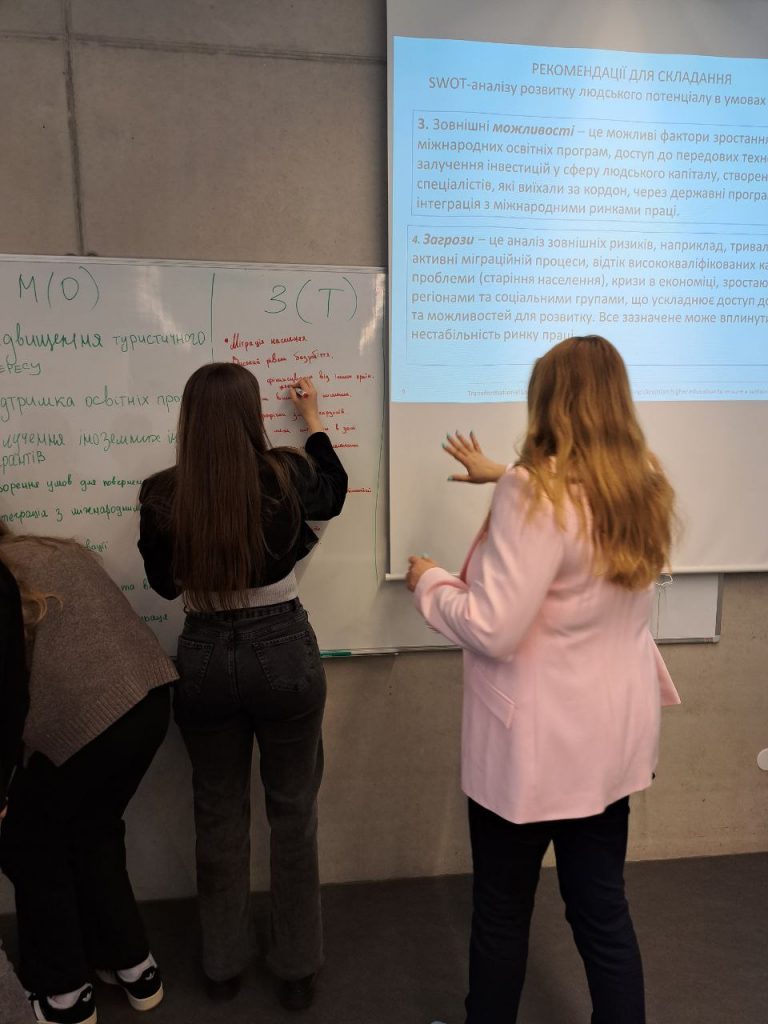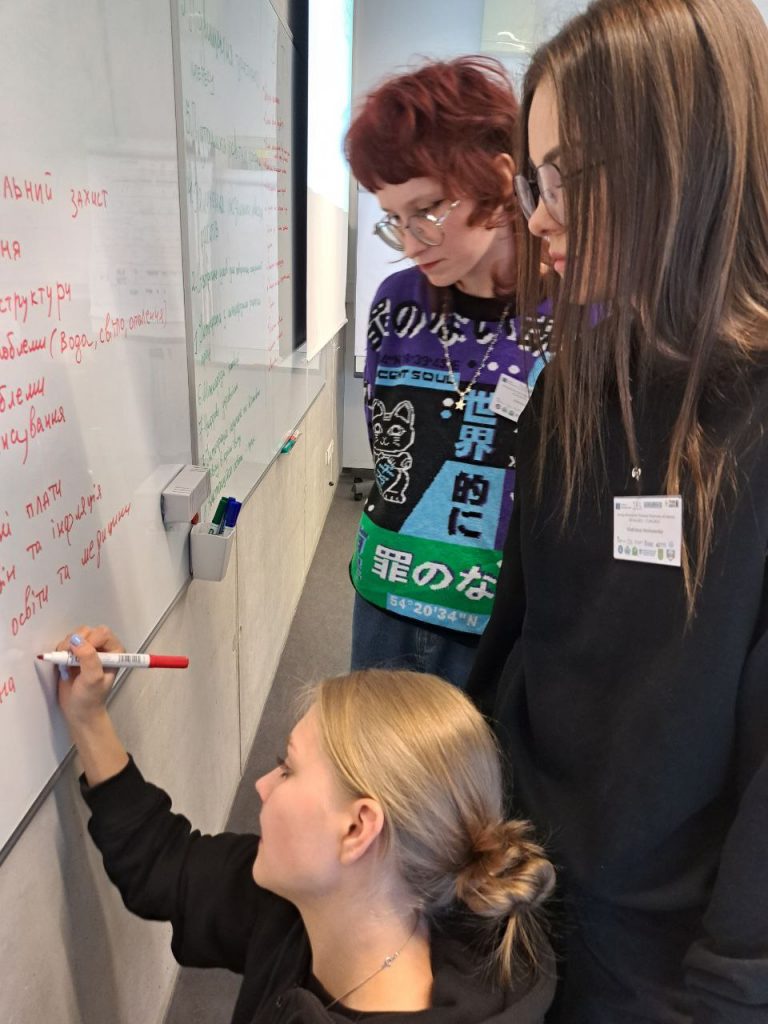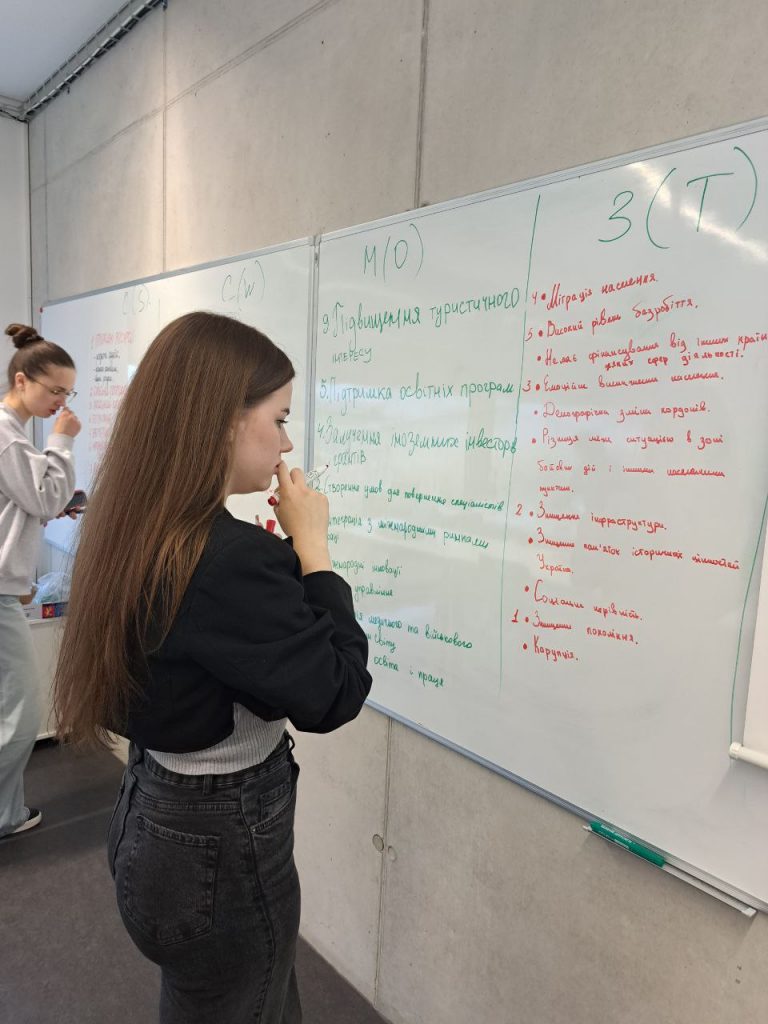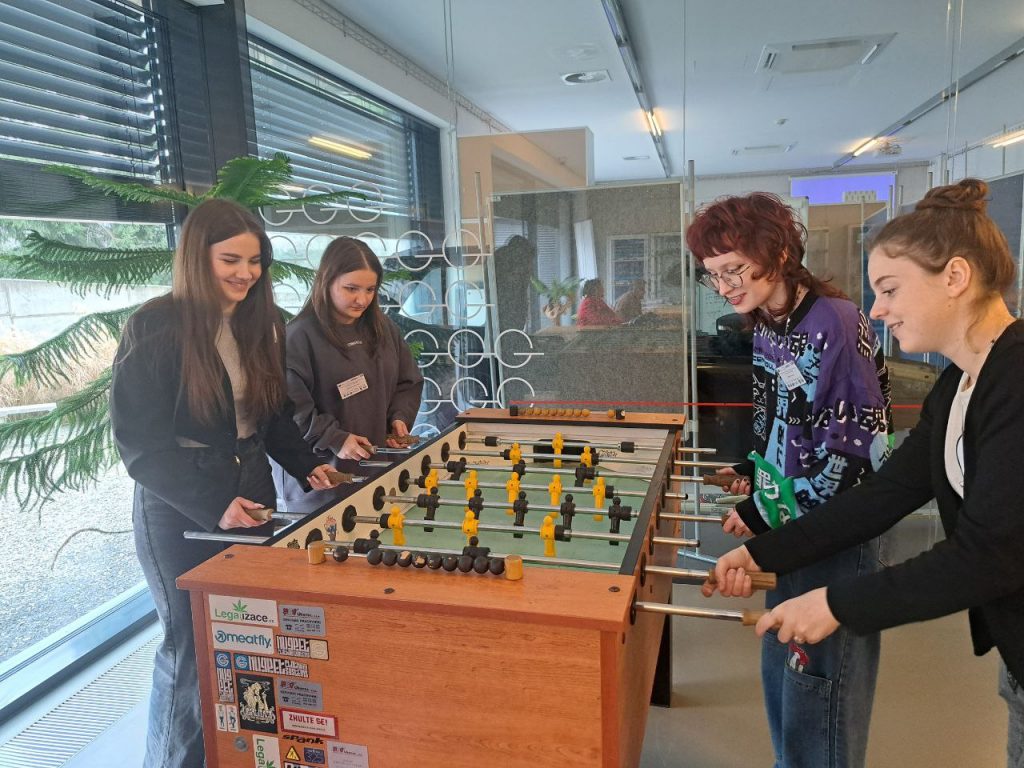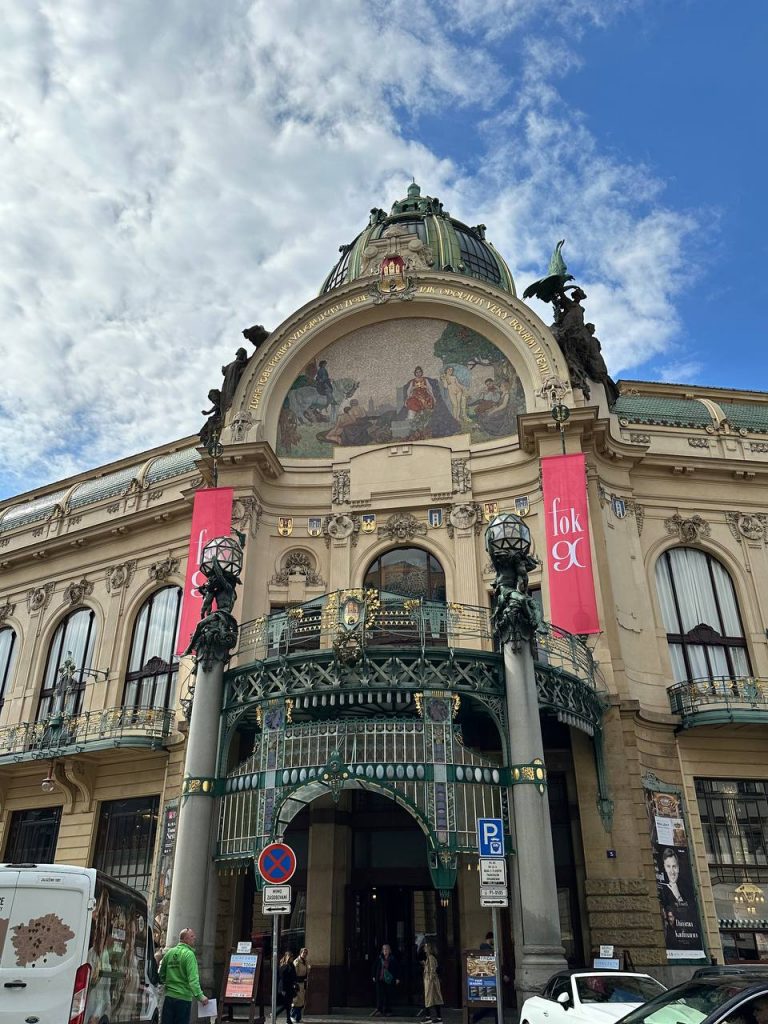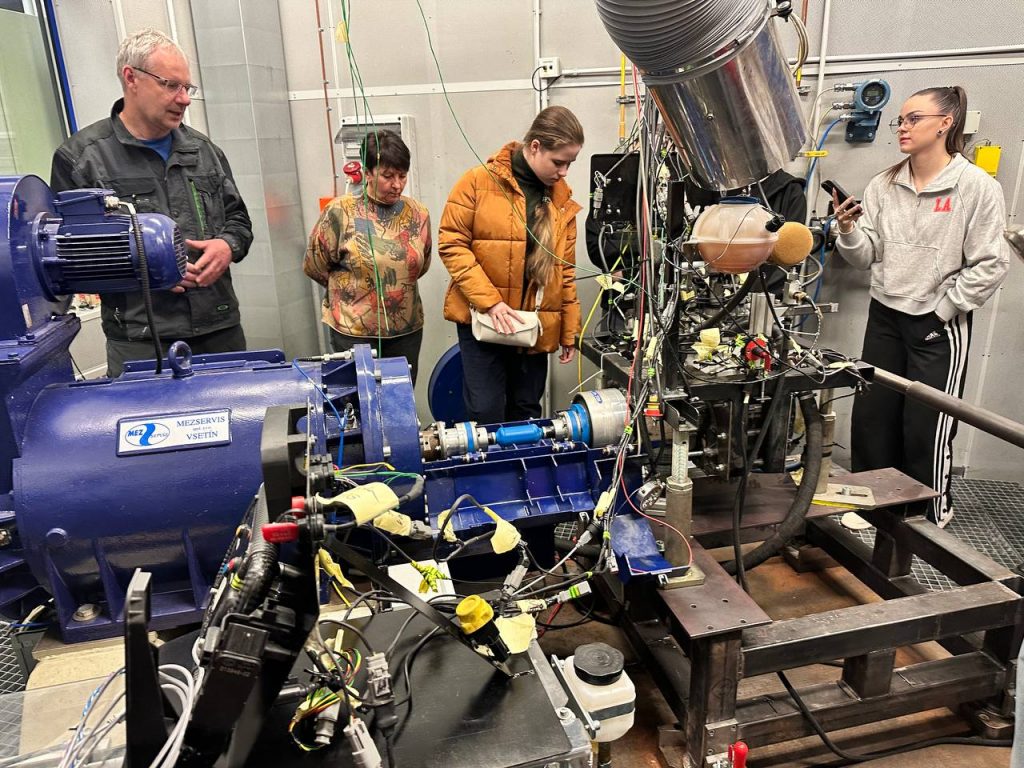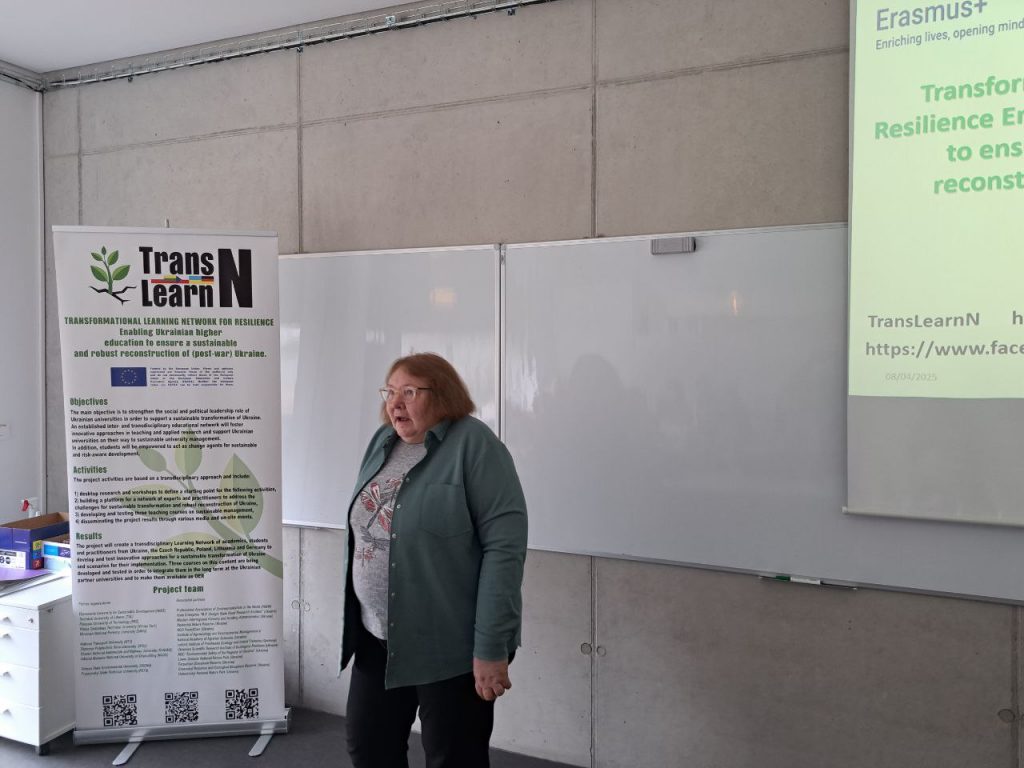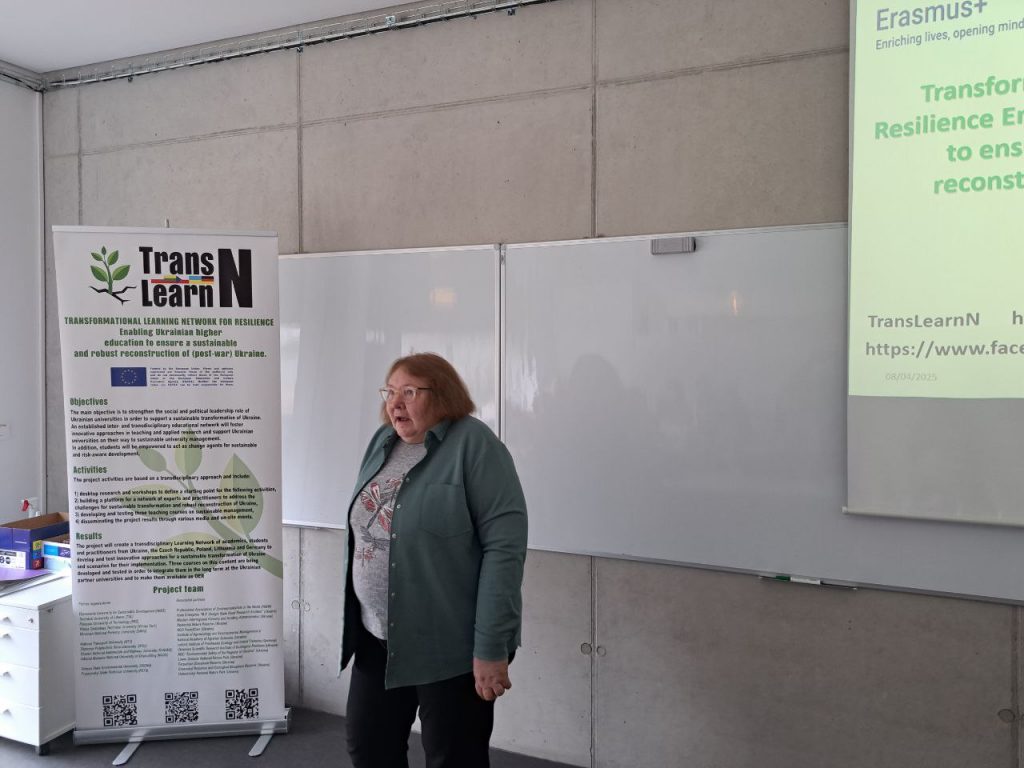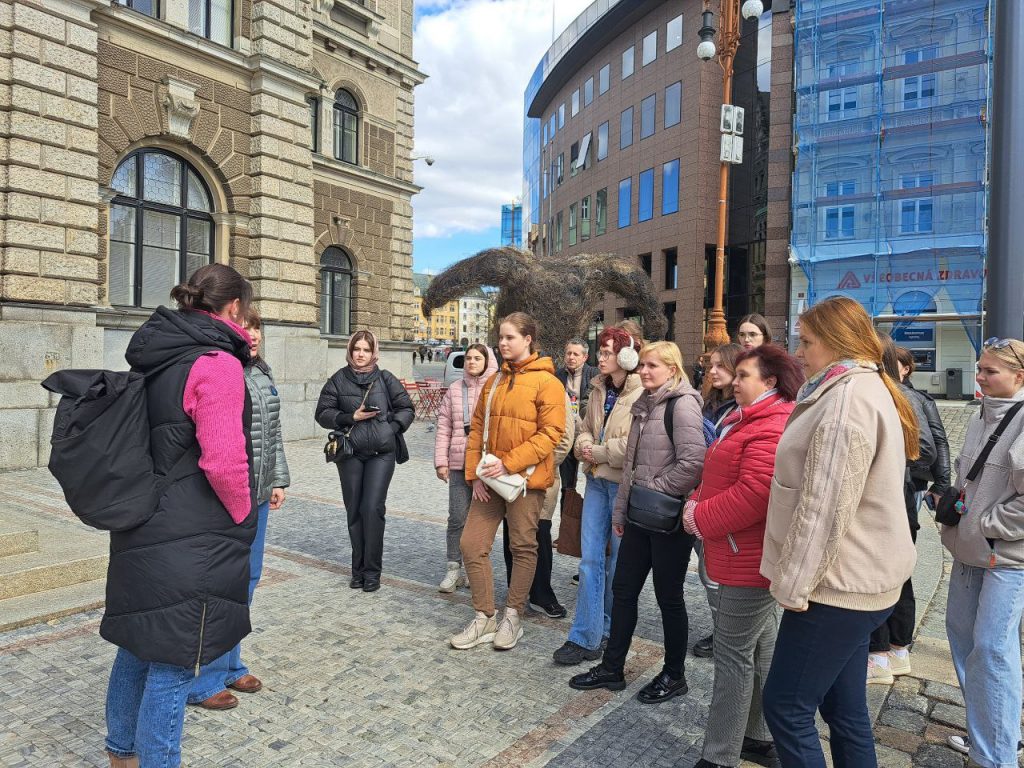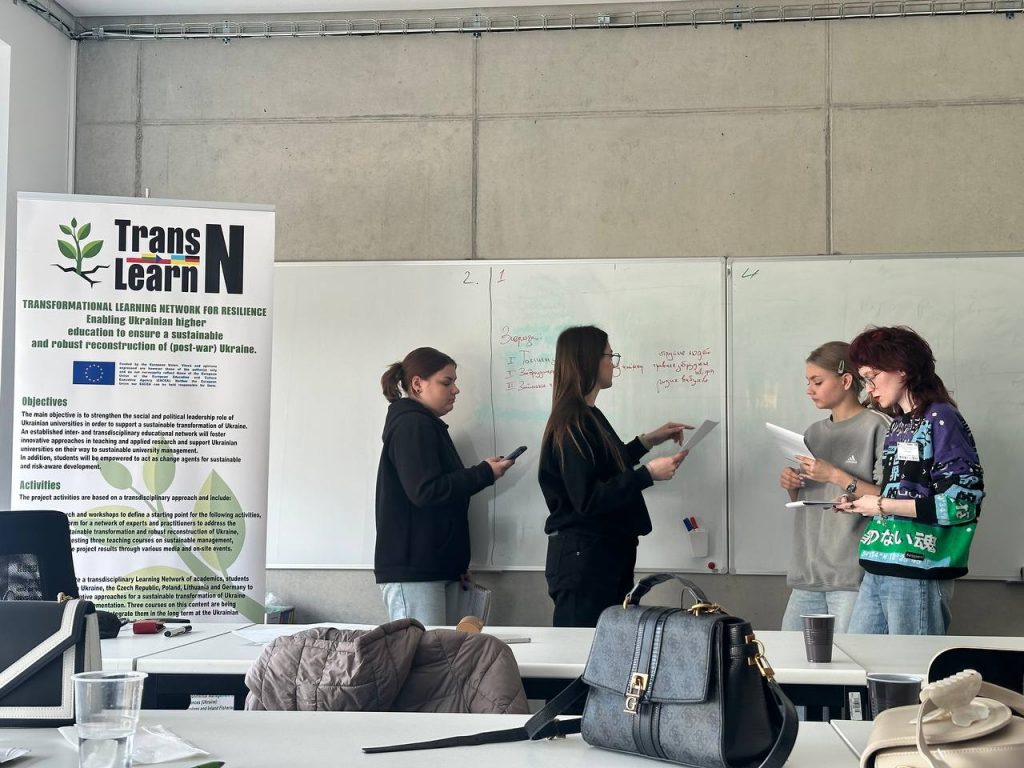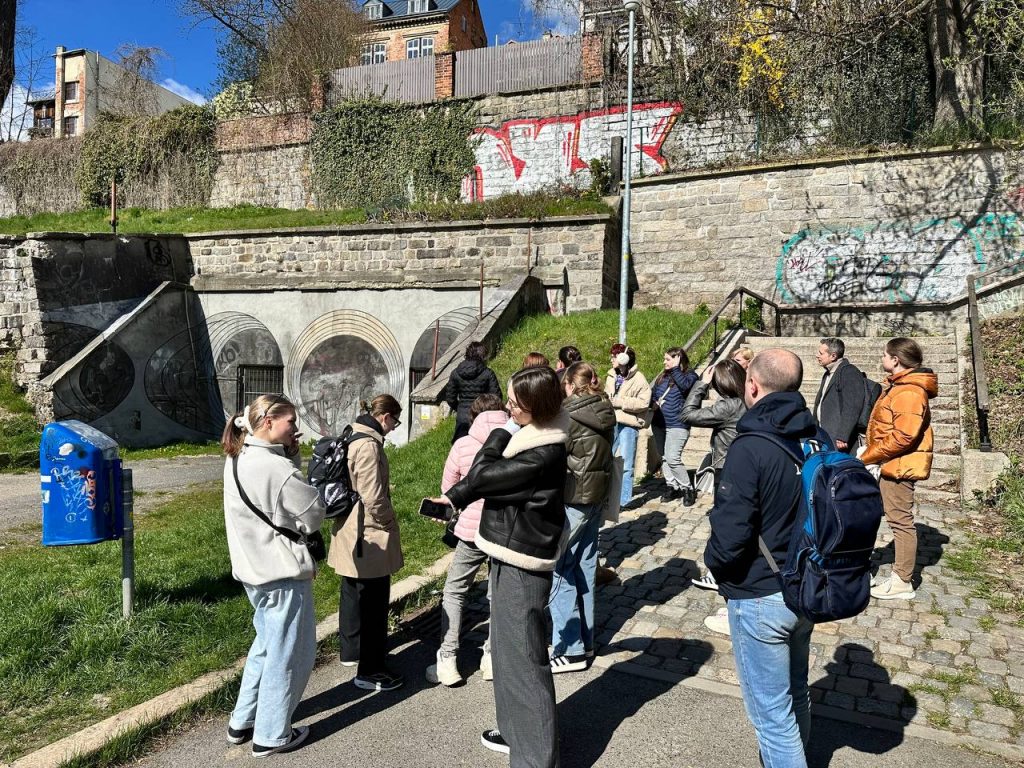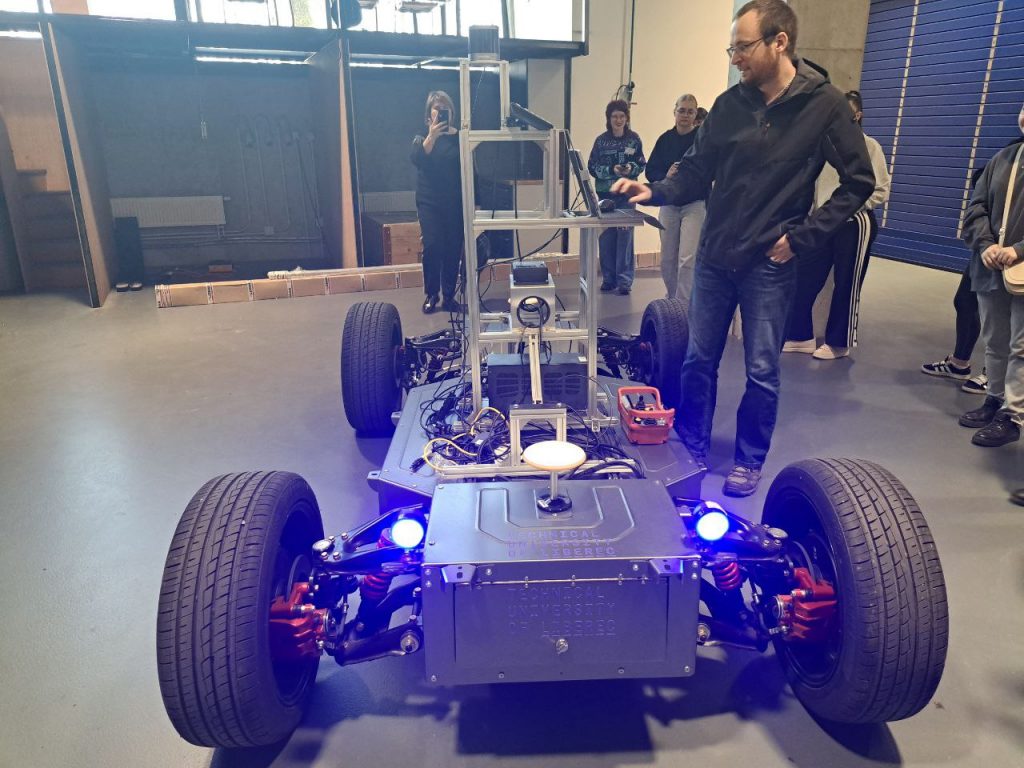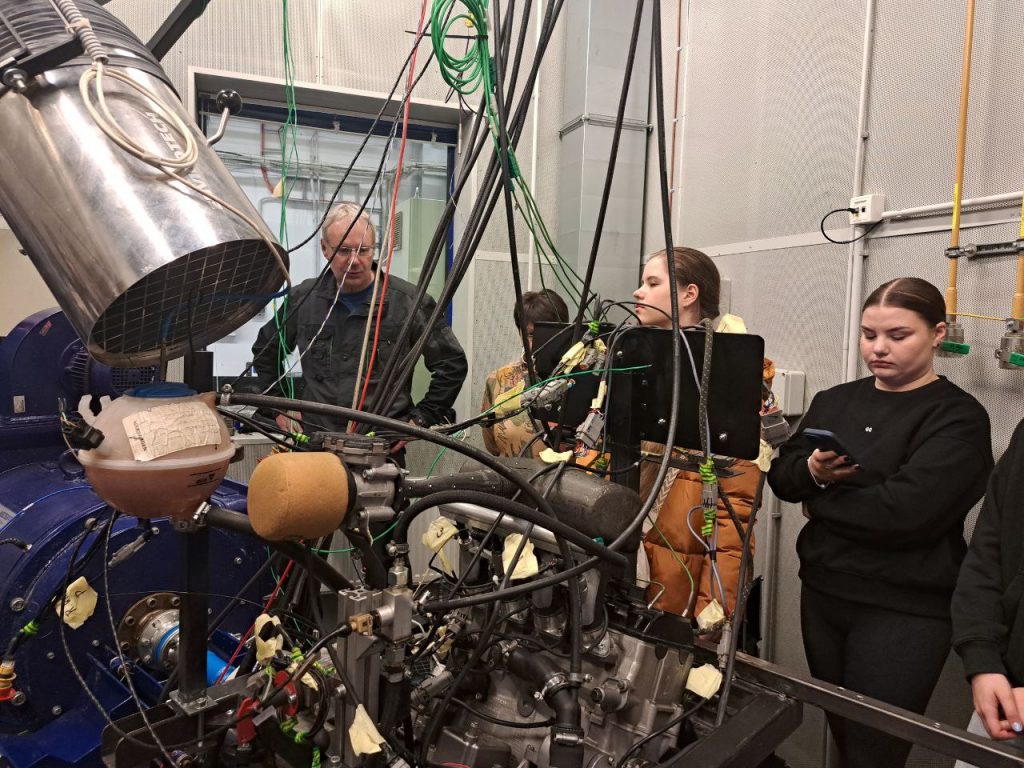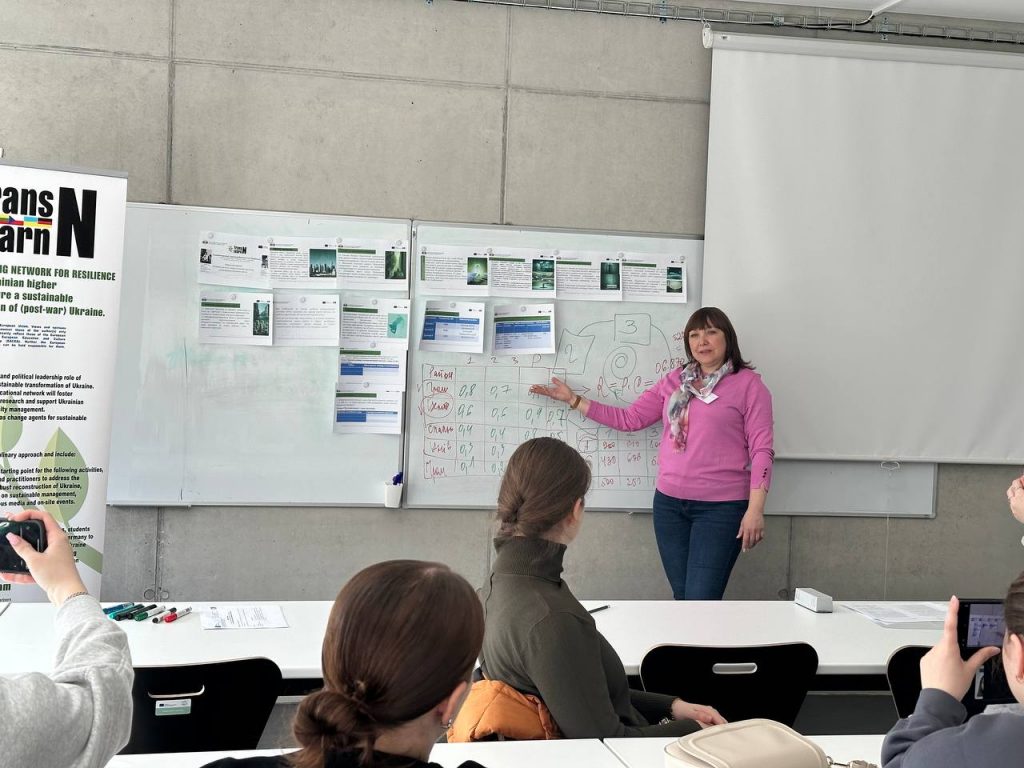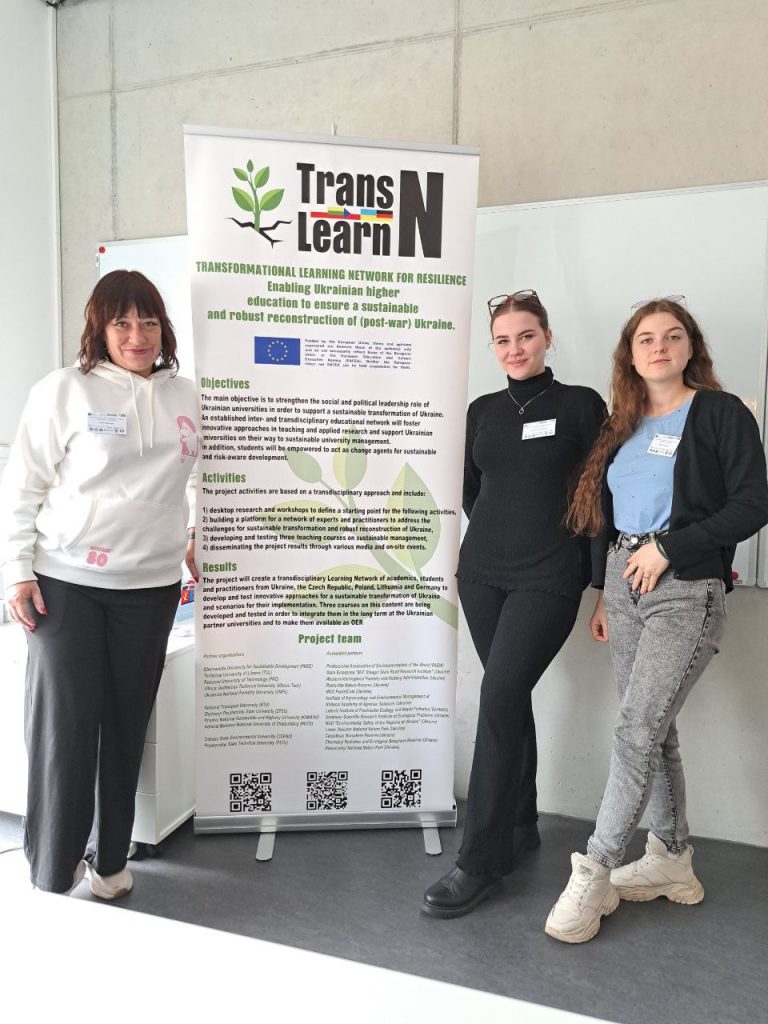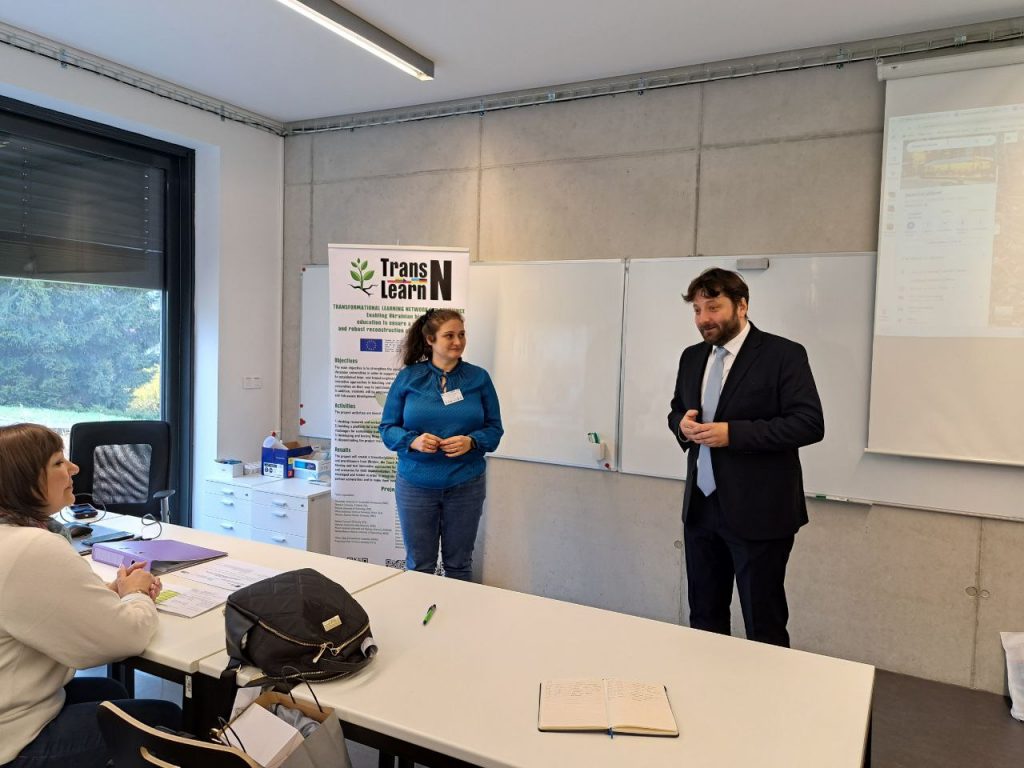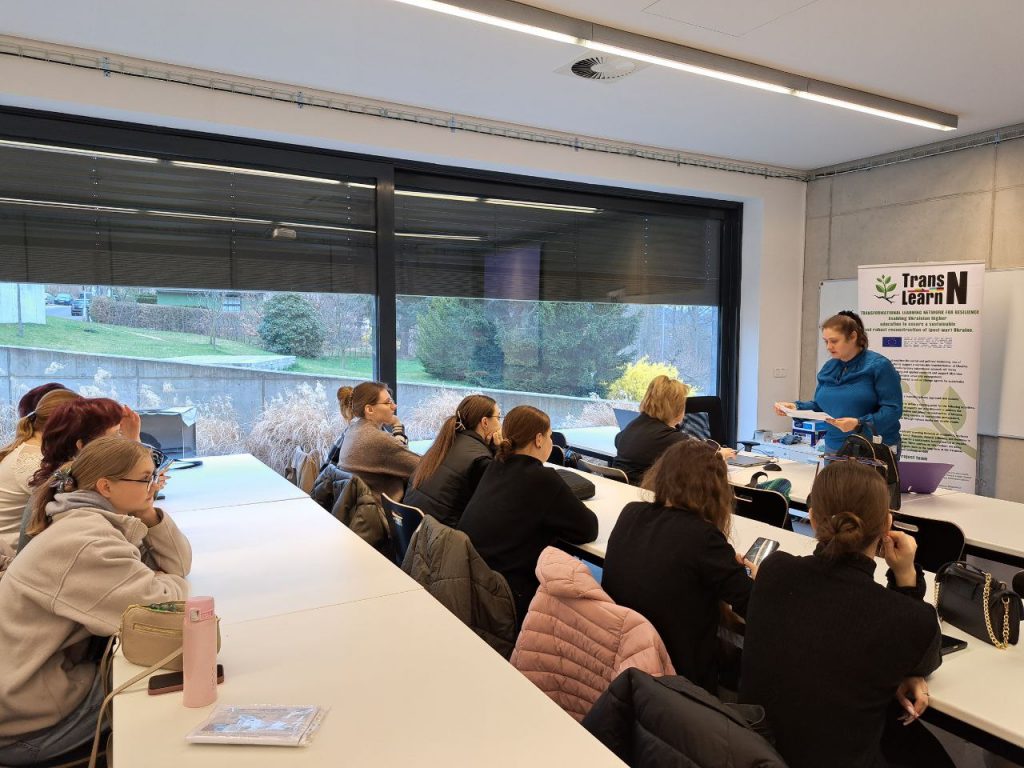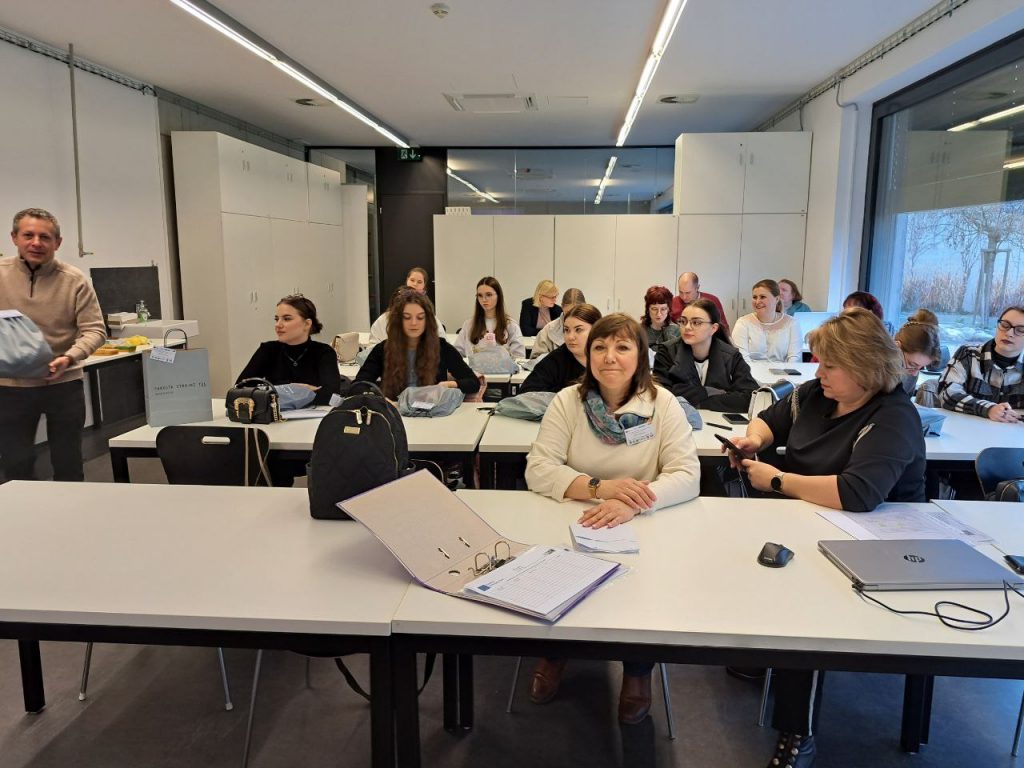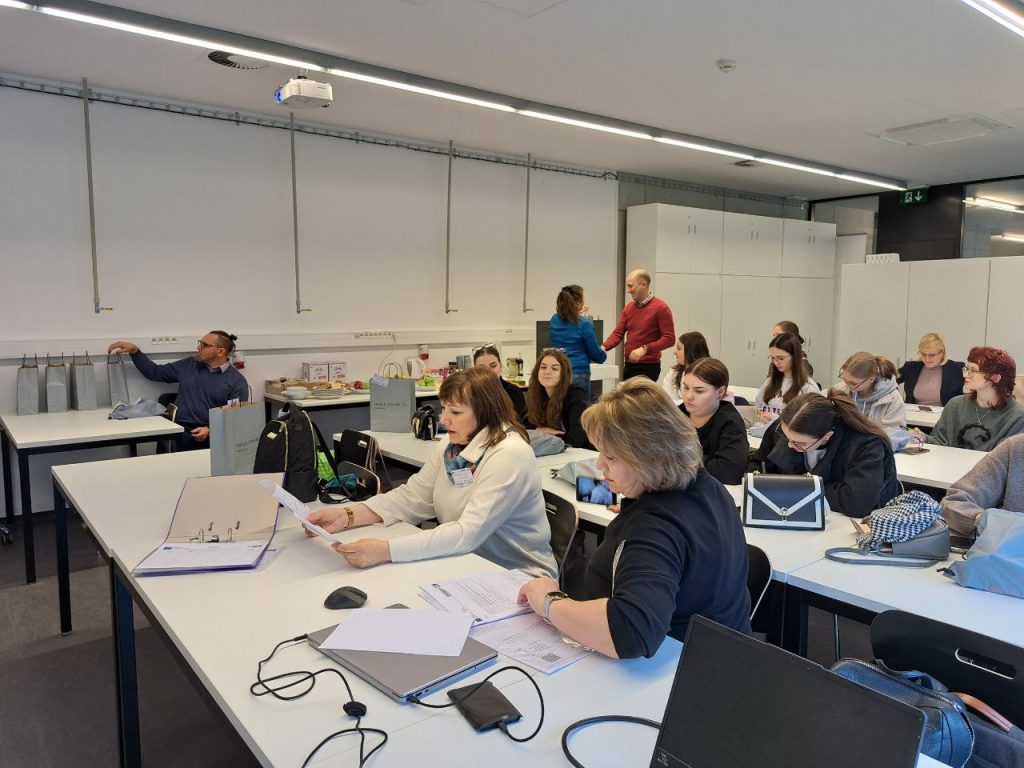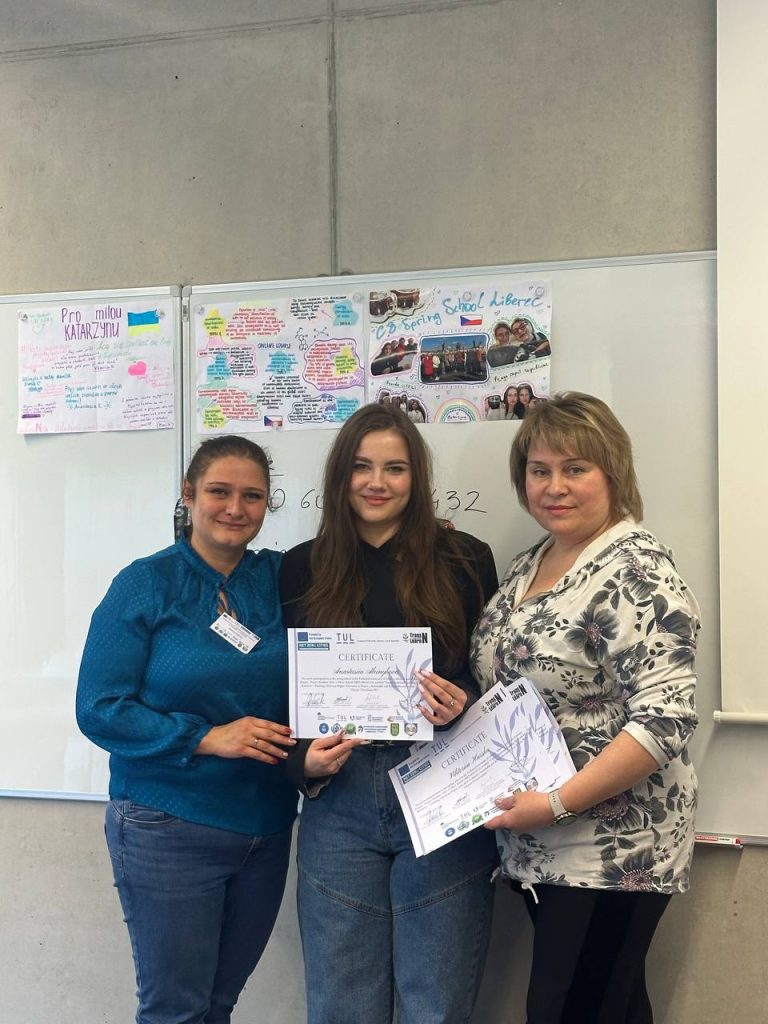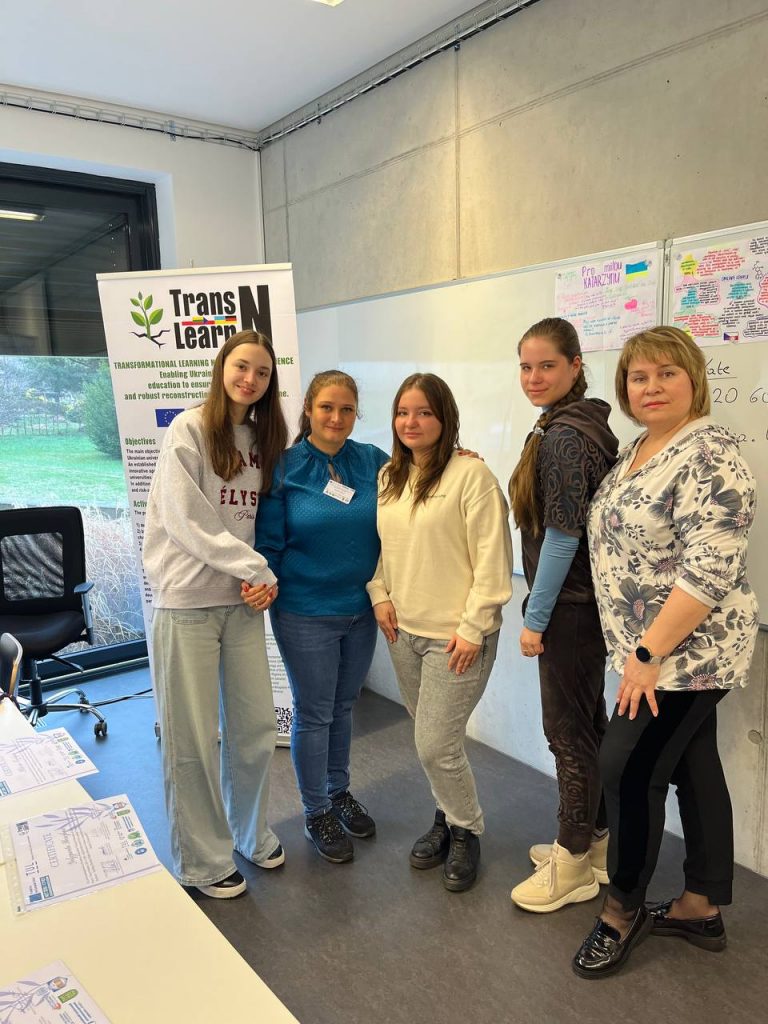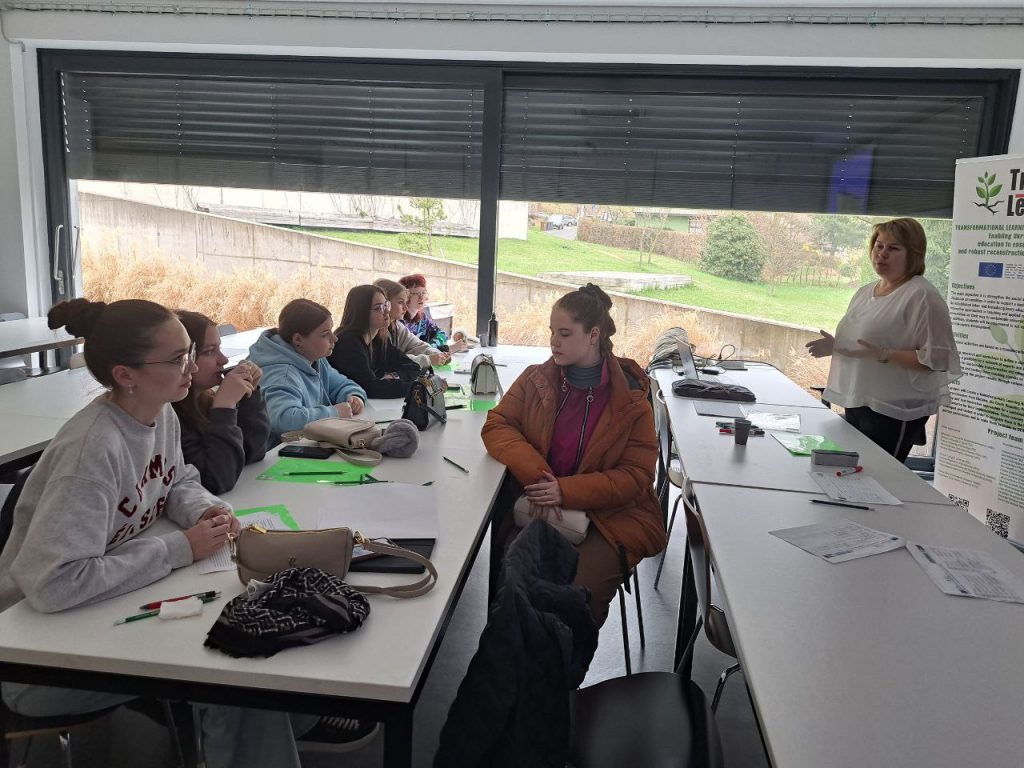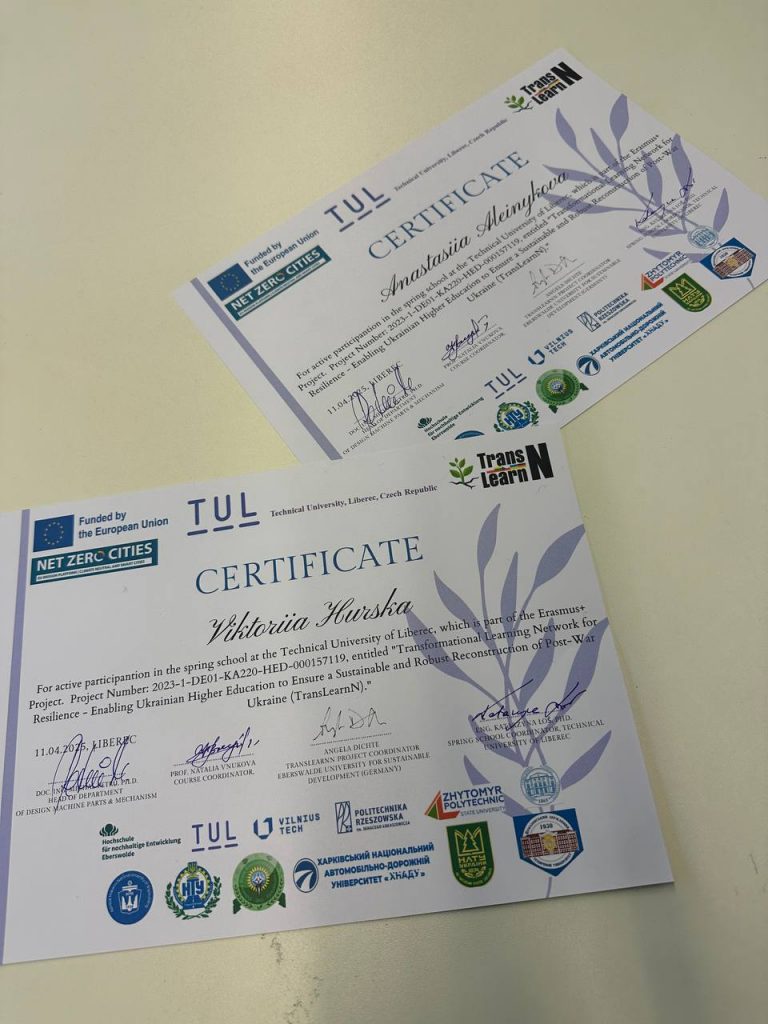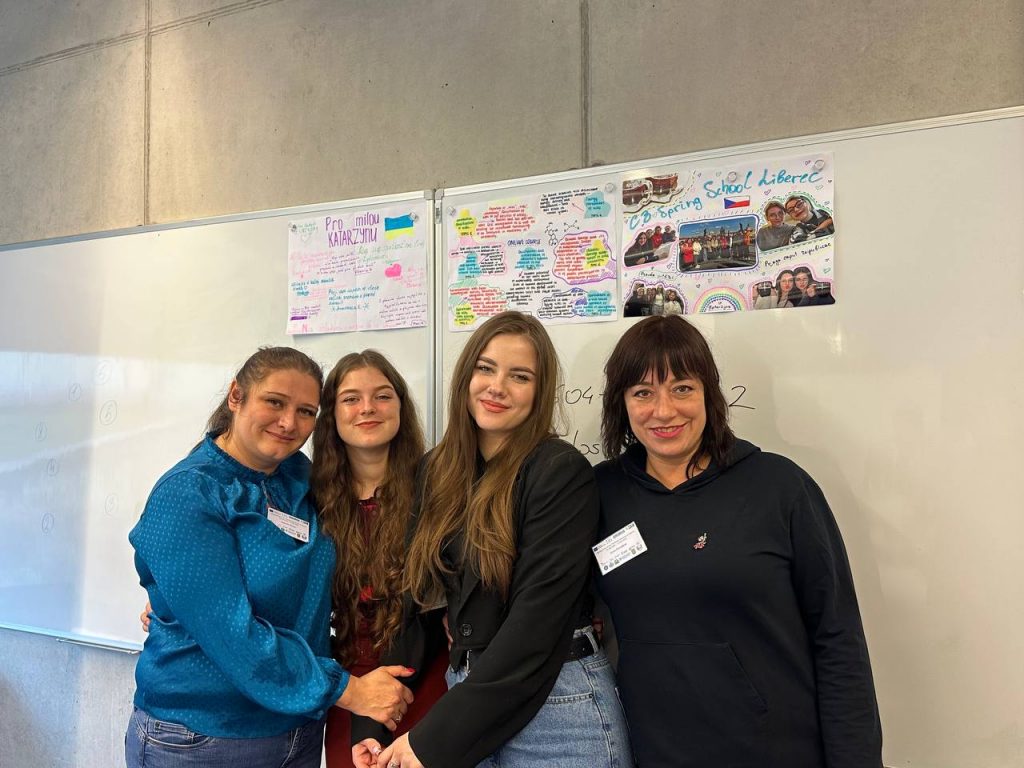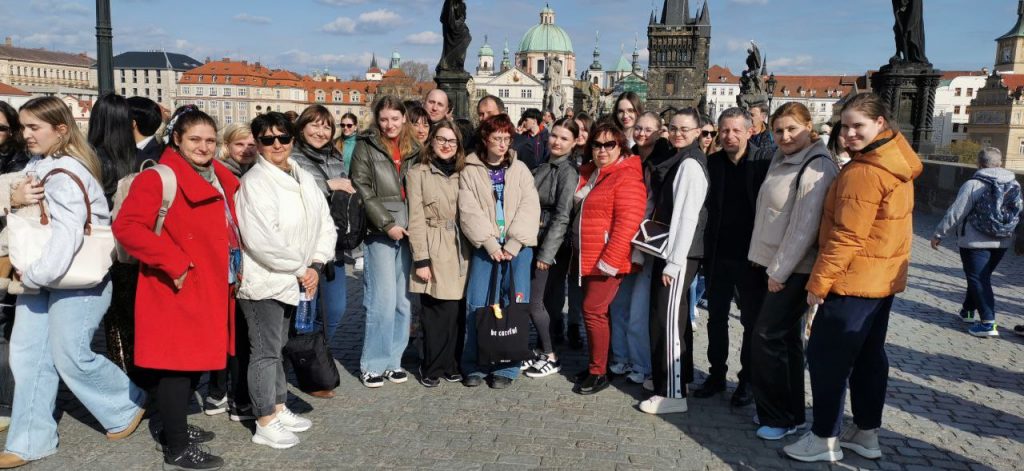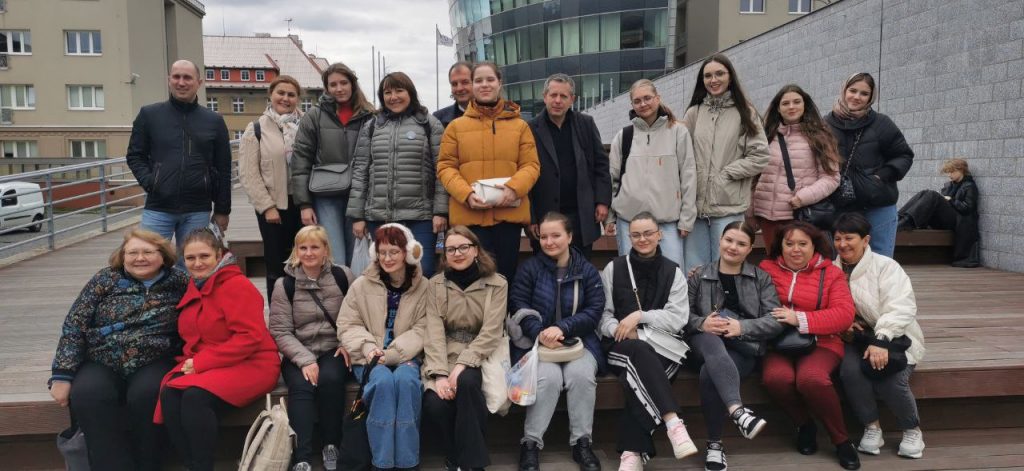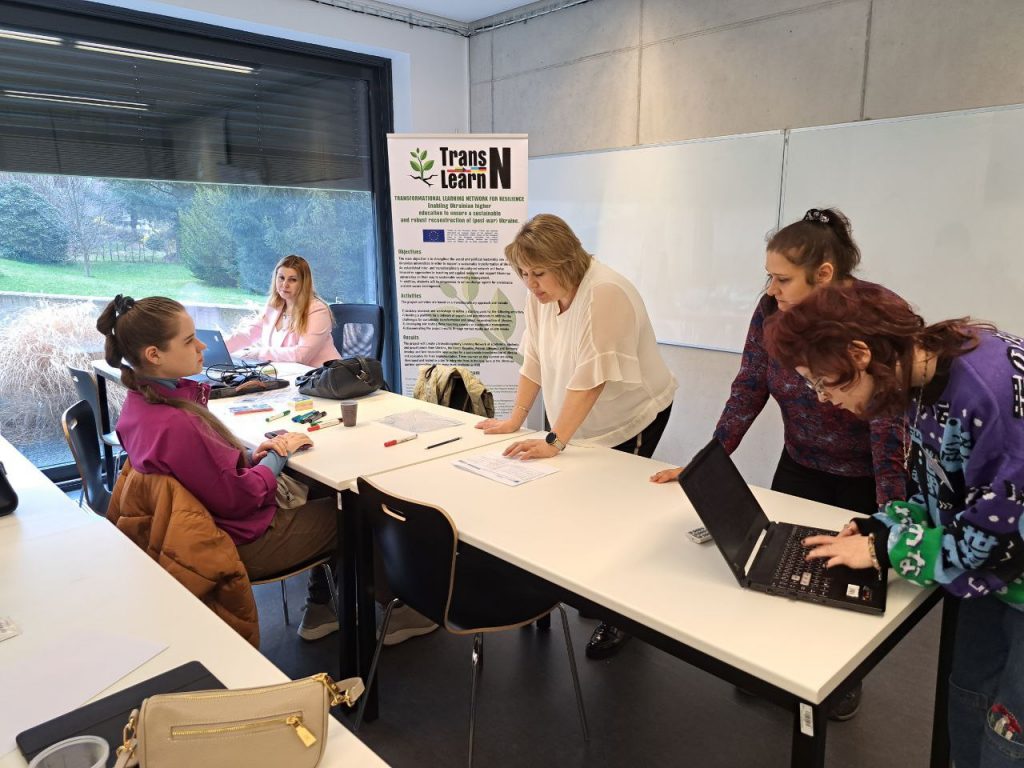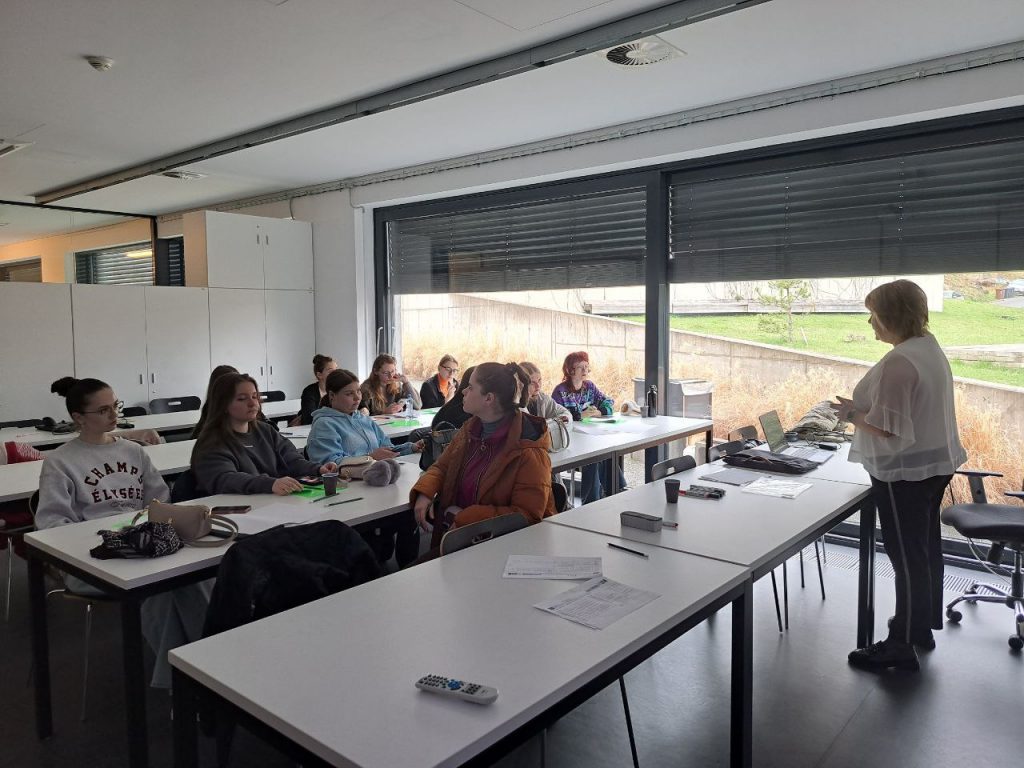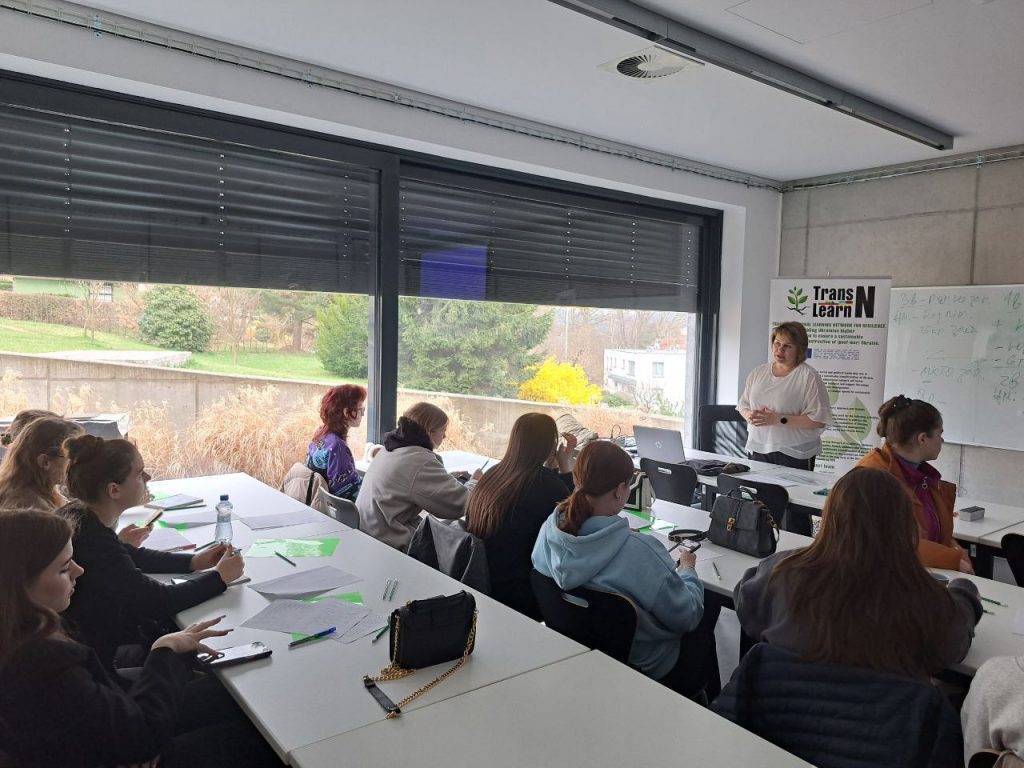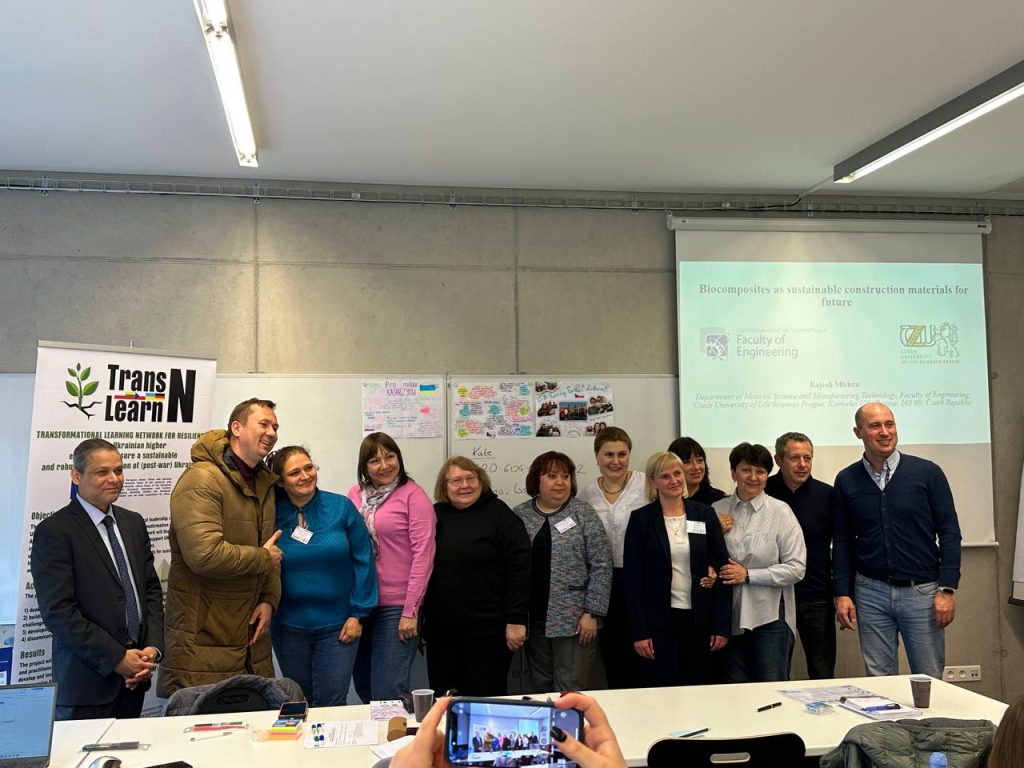From April 7 to 12, 2025, the TransLearnN Spring School Course C3 “Sustainable Pathways and Risk Management in Times of Crises” took place at the Technical University of Liberec, Czech Republic. The project and therefore the Spring School are co-financed by the EU under the Erasmus+ Cooperation Partnerships programme.
The event, supported by the Erasmus+ programme in the field of capacity building in higher education, was aimed at developing practical skills in decision-making during crisis situations and understanding the complex interaction of multiple crises to build capacity for relevant and sustainable decision-making and action. The main objective of the course was to teach future professionals how to effectively manage risks and develop sustainable solutions to address challenges and opportunities during periods of multiple crises.
The programme was attended by 14 students, 7 teaching developers, and 3 stakeholder-experts from Ukraine, Poland, and the Czech Republic. The course was developed by representatives from various Ukrainian partner universities of the project. Experts from NTU (Ukraine), Rzeszow University of Technology (Poland), and Technical University of Liberec (Czech Republic) also participated.
The event was organized by Technical University of Liberec under the supervision of project supervisor Katarzyna Los. The event was ceremonially opened by the Dean of the Faculty of Mechanical Engineering at TUL, while invited lecturers—3 professors from Technical University of Liberec—ensured the high scientific level of the programme.
The main objective of the school was to develop student competencies in the areas of:
- Public administration—preparing future officials for effective crisis management
- Economic sectors—training representatives from various economic industries
- Public activism—developing skills for civic leaders
Learning outcomes included:
- Ability to make decisions in crisis situations
- Ability to stay on the path of sustainable development under conditions of limited resources
- Generating sustainable solutions to address challenges and utilize opportunities during periods of multiple crises
- Synthesizing sustainable multi-approach solutions for various industries
- Combining different administrative and management skills to support interdisciplinary synthesis of sustainable solutions
The Spring School consisted of two logically connected stages:
First stage (March 24-28, 2025, online)—students were introduced to the theoretical foundations of the course through online lectures that laid the groundwork for subsequent practical work.
Second stage (April 7-12, 2025, on-site in Liberec)—intensive practical programme at the Technical University of Liberec campus. The programme included:
- Daily practical sessions with different teams from Ukrainian universities
- Presentations and experience exchange between Ukrainian and European universities
- Expert lectures from Technical University of Liberec and partner institutions
- Excursions to university laboratories featuring state-of-the-art equipment from Škoda and Volkswagen corporations
- Introduction to innovative practices of Czech colleagues
In addition to the intensive academic programme, participants had the unique opportunity to explore Czech cultural heritage: students visited the renowned historic European city of Prague, where they learned about the ancient history of the city, visited the municipal library and Prague University. This trip allowed participants to deepen their understanding of European educational traditions and cultural context; participants learned about the history of the city of Liberec and its role in sustainable urban development within the NetZeroCities project, adding a practical dimension to theoretical knowledge about sustainable development; a thematic excursion to an industrial enterprise allowed participants to see practical applications of sustainable production principles and risk management in real-world conditions.
Upon completion of the course, participants received:
- Additional competencies in risk management and decision-making during crisis situations
- Non-formal education certificate under the international programme (2 ECTS credits)
- Credit transfer opportunities when studying under educational programmes at their home universities
- International mobility experience at one of the best technical universities in the Czech Republic
The final presentation of learning outcomes and discussion of course improvement opportunities took place on the last day of the programme, demonstrating the high quality and practical value of the acquired knowledge.
We express our sincere gratitude to the Erasmus+ programme for generous financial support and the opportunity to implement this unique educational project. Special thanks to Technical University of Liberec and personally to project supervisor Katarzyna Los for impeccable event organization, hospitality, and creating a conducive atmosphere for learning.
We thank the coordinator of the TransLearnN project Angela Dichte from Eberswalde University for Sustainable Development for methodological support and overall project leadership.
We are grateful to all course developer teachers from Ukrainian partner universities of the project for professional development of educational content and active participation in programme implementation.
We sincerely thank students from Ukrainian universities for active participation, creativity, and openness to new knowledge. Thanks to your motivation and enthusiasm, this spring school became a true platform for academic and cultural exchange.
Together we have proven that international educational cooperation can overcome any challenges and create a solid foundation for future sustainable development. We look forward to further implementation of this course at Ukrainian universities and new joint educational initiatives.
